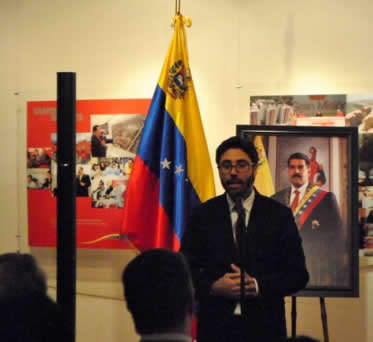Havana, February 13, 2015
Remarks at the presentation of the book ¿Quién mató al Che?
Cómo la CIA logró salir impune del asesinato by Michael Ratner
and Michael Steven Smith, Social Sciences Publishing House, Cuba.
[Spanish translation of Who Killed Che? How the CIA Got Away With Murder]
Unofficial translation by Susana Hurlich, Havana
================================================
A Book that was Missing
Ricardo Alarcón de Quesada
Michael Ratner and Michael Steven Smith, in addition to being eminent lawyers, are active participants in the most important battles of the North American people for justice and freedom. Their book, dedicated to Leonard Weinglass – who, up to his last breath, devoted his life to the liberation of the Five Cuban anti-terrorists who served long years of unjust and cruel imprisonment in the United States – pays well-deserved tribute to our mutual friend when our heroes have now returned free to the Homeland.
To fight for justice in that country means, above all, to seek the truth and make it known in the most difficult of circumstances, confronting the concealment and manipulation of a powerful machinery determined to impose nothing else but ignorance on millions of people. This is a task that Lenny as well as Ratner and Smith have known how to carry out assiduously and consistently.
To prove that Ernesto Guevara was assassinated by the CIA, that his death was a war crime – a crime that never perishes – and that this deed was entirely the responsibility of the U.S. government called for an unremitting search.
After many years of demanding that the authorities comply with their own laws with respect to public access to information, today we can read documents that, despite the crossings-out and deletions that still seek to conceal numerous facts, allow the reader to discover that the official versions about Ernesto Guevara’s final combat were deliberately distorted.
It’s all about trying to make us believe that Washington preferred that Che, defeated and taken prisoner, would continue to live and that the crime was the result of unilateral decisions made by soldiers of the Bolivian Army who were then a docile instrument of the Empire.
Much has been written about Che and his epic Bolivian campaign and there are many authors who echoed the interpretation fabricated by the exponents of “plausible deniability.†At this stage, when both selective and massive assassination and the practice of torture and extrajudicial executions have become a generalized practice of a new way of making war, the book by Ratner and Smith is an opportune reminder that such treatment has a long trajectory.
It is as old as that of using servile armies and assassins – uniformed or not – as simple tools causing countless suffering to the peoples of Latin America under military dictatorships that the United States equipped, trained and managed.
In an earlier book, published in 1997 and the result of an equally relentless pursuit, the authors had revealed how the FBI tracked Ernesto Guevara’s activities in Guatemala and Mexico when he was not yet Che. In this book that they offer us now it can be confirmed that during his Bolivian campaign he was obsessively followed at the highest levels in Washington.
The U.S. Government’s Central Intelligence Agency was responsible for the cold-blooded murder of a wounded and unarmed young prisoner by the name of Ernesto Guervara. The actual perpetrators of the cowardly act were soldiers who acted under the control of the CIA and obeyed their orders without batting an eye.
Some are still walking, however, on the streets of Miami or are in their offices at Langley, mulling over their frustration. Because they could not kill Che. Che continued to live and his message returned victorious in a new Bolivia and in a Latin America that confidently moves ahead towards complete emancipation.
Because Che fought all his life leading the list of those named as essential by Bertolt Brecht. Essential are those who are never missing when they are most needed, those who are present, always on the front line, when the struggle is harder and more complex.
That is why Che lives. Because we need him now more than ever.
The Cuban edition of this book appears in a new juncture in which we greatly need the Guevarian light. Now we are entering a stage that poses new challenges that we must face with wisdom and firmness. The historic enemy of our people has not changed its nature or its strategy of domination, only its tactics. Because its crude and violent policy – and it is recognized as such – of half a century failed, now it will test methods that intend to be more subtle to achieve the same ends.
We must accept the challenge and advance down that path without ever abandoning our principles. And always remembering Che’s visionary warning. Do not trust the imperialists “not even a little bit, not in anything.â€












